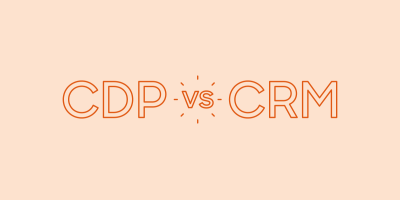
4 Reasons to Ditch Your Marketing Service Provider for a CDP

Marketing Service Providers (MSPs) are the old guard of omnichannel customer data management, but they have lost ground in recent years to the dramatically more agile and accessible approach of Customer Data Platforms (CDPs) like Acquia CDP. For many brands, the question of switching from an MSP to a CDP is a matter of when, not if. The top four reasons for the switch are that brands want:
- Direct access to their data
- A platform based approach to managing customer data
- Future-proofing
- Lower cost of ownership on their marketing investments
Let’s dive into how CDPs are different from MSPs in each of these four areas.
Access to Data
CDPs give marketers direct access to first party data, which is open and accessible. Marketers can explore data on an ad hoc basis and easily connect their data with third party systems without additional contracts. This open access lets marketers more freely leverage data for marketing, enabling more relevant customer engagement and increasing marketing ROI.
MSPs directly manage their clients’ first party data, which creates a “black box” for their clients. Data requests must go through the MSP, and these requests are typically handled on a case-by-case basis. This causes lengthy wait times for accessing data, creates additional costs and hinders the ability for marketers to fully leverage customer data for personalized engagement.
Siloed Solutions vs. A Centralized Technology Platform
CDPs like Acquia CDP are built on a rich SaaS platform with big data technology. This platform approach allows for continuous updates with new features and capabilities always being added. Acquia’s open platform means that users can integrate with any bought or built technology and scale as their needs require.
MSPs typically combine some technology and services. An MSP does not typically develop technology themselves, but instead relies on partners to provide different features. This can result in a random mix of different, sometimes antiquated technologies. The MSP approach can cause an over-reliance on services — again increasing costs and creating a barrier to data.
Future-proofing
CDPs are inherently future-proofed because CDPs are platform-centric, not services-centric. This means that as a brand’s marketing needs evolve, and as the marketing technology landscape evolves, a CDP will always stay lockstep with any changes on the horizon. Also, an enterprise CDP can easily scale to meet new demand and be easily configured to meet new requirements.
MSPs create custom solutions for specific use cases in specific moments in time. As needs change, MSPs respond to change by building new custom systems. This places limits on how a brand can re-envision its marketing strategy, reduces a brand’s ability to be nimble, and makes any changes a brand chooses to implement a heavy burden for the organization.
Total Cost of Ownership
CDPs typically have a pricing structure that is predictable and allows marketers infinite flexibility and configurability without additional costs. This keeps the total cost of ownership (TCO) low, no matter how a brand’s needs evolve.
MSPs typically become more expensive based on the customization of a solution. One-off requests such as new data pulls, new reports, or new integrations typically incur additional charges. This keeps the TCO high, especially as brands grow and evolve.
Summary
At one time, enterprise B2C marketing and CRM teams typically engaged with MSPs to optimize their analytics programs, stitch data together and attempt to orchestrate personalization across channels. Today, enterprise retailers are trading up for the ROI of enterprise customer data platforms like Acquia CDP that provide a more agile and accessible alternative to the legacy, services-heavy, request-driven engagements that are hallmarks of MSPs.
Marketers today have tons of data and need to access critical customer insights across all channels. A CDP is the missing link that unites all your data to bring you a whole-person view of your customers. For more on how an enterprise CDP offers total transparency into all of your customer data and helps fuel marketing campaigns, watch a demo of Acquia CDP.


